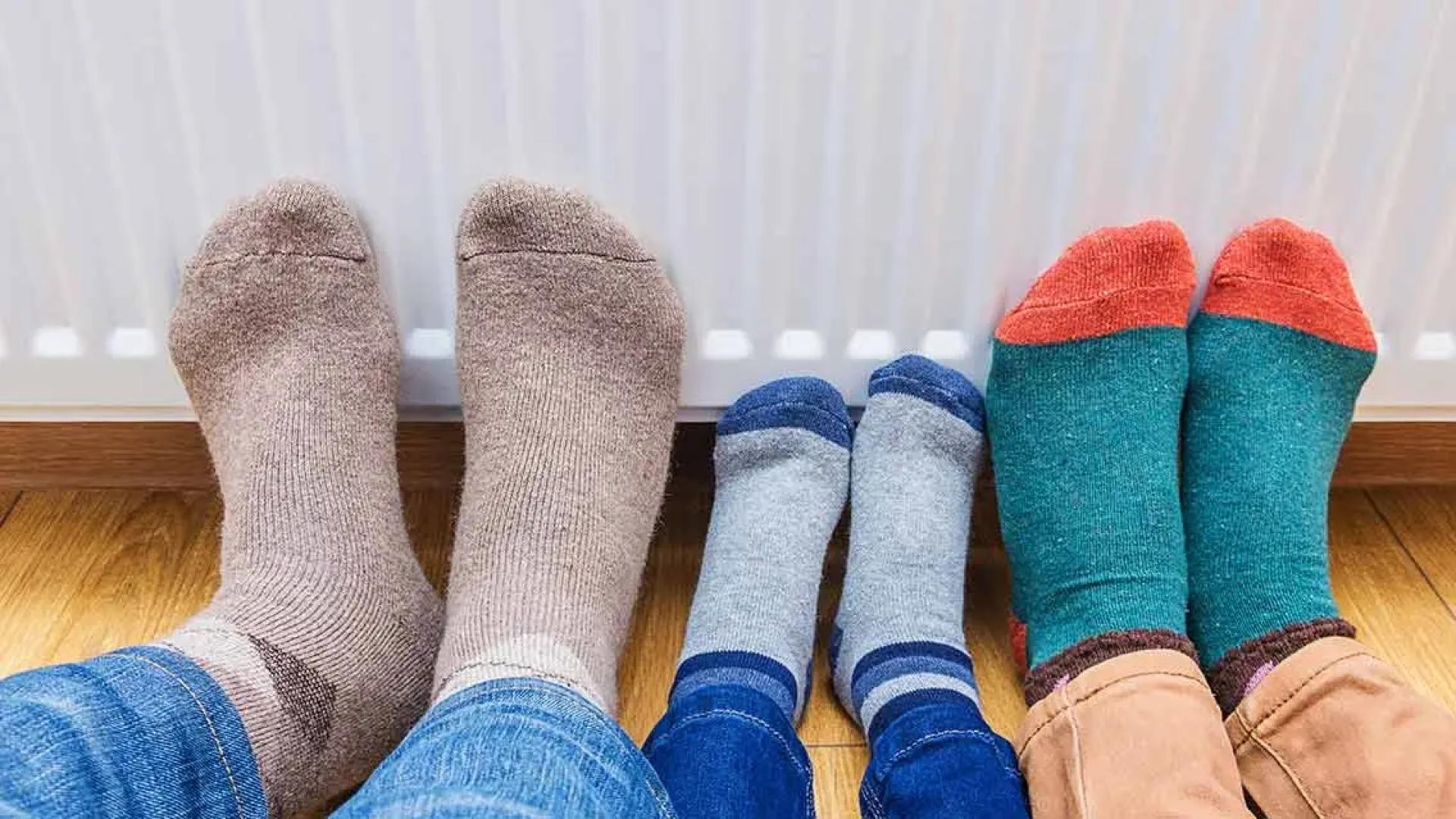When should you turn your central heating on for Winter?

Are you someone who prefers to be warm and cosy or cool and comfortable? We can never predict when the British weather is going to change but we know that around now, any heat we’ve had over the Summer will start to fade away and that chill in the air will start to become more noticeable.
Maybe you welcome it or maybe you get the Summer blues, but whichever type you are it will be the start of Autumn that turns our attention to the annual question of when to turn the central heating back on.
What temperature do you like your house?
The first thing to consider is what temperature makes you and your family comfortable, as maybe you are happy for longer in a cooler house, or want the warm cosy feeling sooner. The size, condition and how insulated and energy efficient your house is will determine how well it retains any heat naturally. Your lifestyle will determine whether you need to heat it for only part of the day e.g. before and after work, or all day long, And how many people living in your house will determine natural heat gains from activities such as cooking and showering.
Does turning on the heat make your energy bills go up?
We will all have heard the news all Summer about the cost of living crisis and the enormous gas and electricity price rises heading our way. Thankfully, measures have been introduced to lessen these rises but it is still going to be a tough Winter, felt by the majority. Clearly, turning your heating on is going to use fuel and will cost money so it will always be a good idea to look at other ways to keep out the chill before you turn to the thermostat. Warmer clothes are an obvious solution. Ensuring doors and windows are not left open unnecessarily, using draught excluders and pulling the curtains, with thermal linings, in each room to give an extra layer over the windows where heat is more easily lost are just a few things you can do.
Does your house always feel cold or ever feel stuffy?
Even when you’ve made the decision to turn the heating on, it is a good idea to monitor the actual temperature that you are reaching and considering when it is ideal for you. If you’re constantly turning the heating on and off it may be that the thermostat is set too high and the heating is still running even after a comfortable temperature has been reached. Maybe you have an old boiler or system that takes a long time to reach temperature or doesn’t then stop quickly enough – In the long term you could save hundreds of pounds by investing in a far more efficient boiler that controls these levels in a much cleverer way. With a smart thermostat installed, they can even detect when you leave or approach your house, reducing or raising the temperature automatically. If you are interested in learning more about the potential costs of great energy efficient boilers, please try our free and simple online quote tool. By answering a few easy questions, we can recommend the most ideal new boilers specifically for you, and with many different finance options available it doesn’t have to cost the earth at this difficult time.
When is the best time to turn on your central heating?
So, when is the best time? Taking everything into account those ‘in the know’ suggest that the optimal date for setting the schedule to ‘ON’ is 30th. While this is obviously not a set date that would suit everybody, depending on the condition of your house and your own comfort levels, many aim for around this time of year, coinciding with when the clocks go back and the evenings get darker.
The Energy Saving Trust suggest that, ideally, your home should be at a temperature of at least 18 °C and this is particularly important for people who are vulnerable such as the young, the elderly, those with reduced mobility or other health conditions.
You can start by simply boosting the heating for an hour or so whenever you feel the need. Then, as the cold nights arrive, you can switch to an automated schedule so that it is warmed by the time you wake up. If your house is well insulated it can be left on at a lower temperature all the time to avoid the boiler having to work so hard heating up from cold constantly but be aware that without good insulation this heat will ‘leak’ readily and your boiler will still have to work hard.
Some final tips
In conclusion, the best way to determine when the best time to turn you central heating on for winter is to examine your lifestyle and your house.
- Get your house checked for insulation as a well-insulated house will keep your boiler off for longer.
- Consider installing a new energy efficient boiler to reduce excess energy usage.
- Hold out for as long as you comfortably can using other methods to keep warm.
- Ask family members to be considerate in their use of energy in the house but make the most of natural heat gains by closing doors to keep used rooms warm without heating unused rooms.
- Consider whether it is warm enough to sleep well.
When all these things have been considered and you’re still feeling the cold, it will be time to boost that boiler!
Published: 23 September 2022